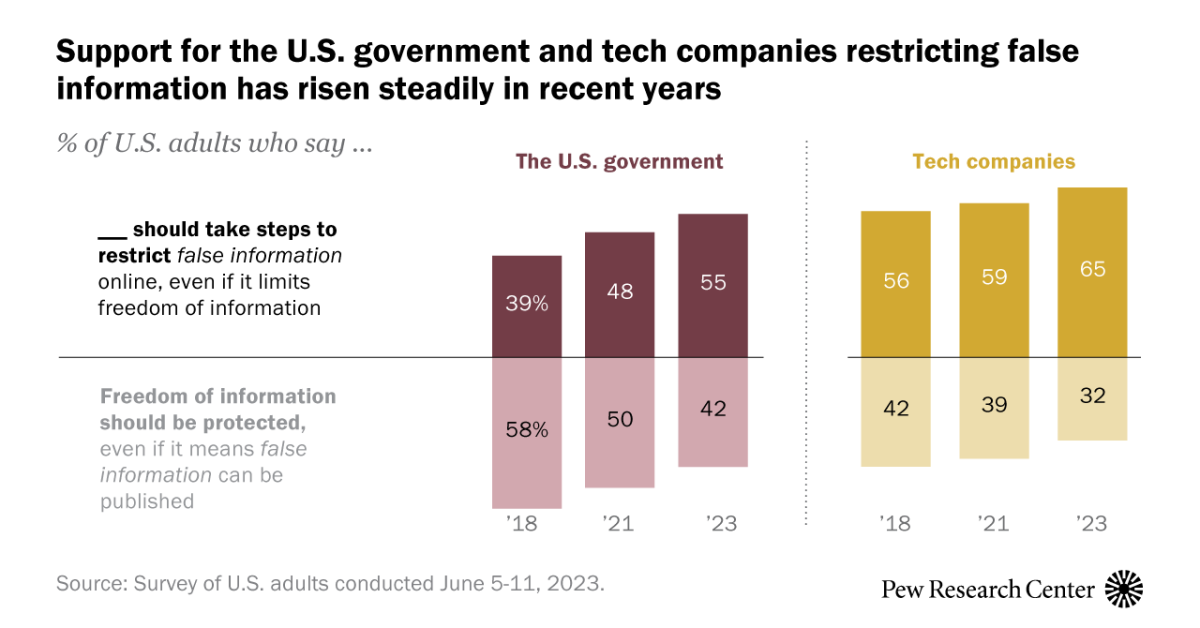65% of Americans support tech companies moderating false information online and 55% support the U.S. government taking these steps. These shares have increased since 2018. Americans are even more supportive of tech companies (71%) and the U.S. government (60%) restricting extremely violent content online.



I feel like you’re not exactly talking about the same thing. What you are afraid of is for the government to have the ability to filter out what they see as “false” information, which I also find a horrible idea. A government with this power would be able to change the information flow to whatever works best for them.
But a government can in my mind make specific rules about certain stuff that we as a society agree upon to not say (just as other laws are things we as a society agree to not do). I know that there are lots of wrong laws that need fixing, but the idea of a law in and of itself is quite sound in my opinion. And therefore I also have no problem with the specific law: people shouldn’t advocate for violence against others because of their sexual orientation.
This is not a slippery slope as every one of these laws on speech would be independently created, and opposed if society does not accept them.This is just like how all other laws are constantly in flux, but pushed towards a moral alignment with the people (e.g. allowing LGBTQ+ marriage). The outrage and possible revolution when these laws go opposite ways is what causes them in the end to align further.
These are all my opinions and views, based on my own experiences and ideas. Feel fee to disagree or correct me!
This is an excellent way of looking at it, that is very different from my initial understanding.
This changes the concern profile entirely, from “who decides what is false” (big concern) to “how do we define advocating, how do we define violence, etc” - which are valid concerns, but apply to just about every law.
Off topic, the cyber security world has been wrestling with “unauthorized access” - is there implicit authorization when a device is attached to the internet? Nobody authorized me to use google - are web requests access? Is bypassing authentication access? It’s a mess.